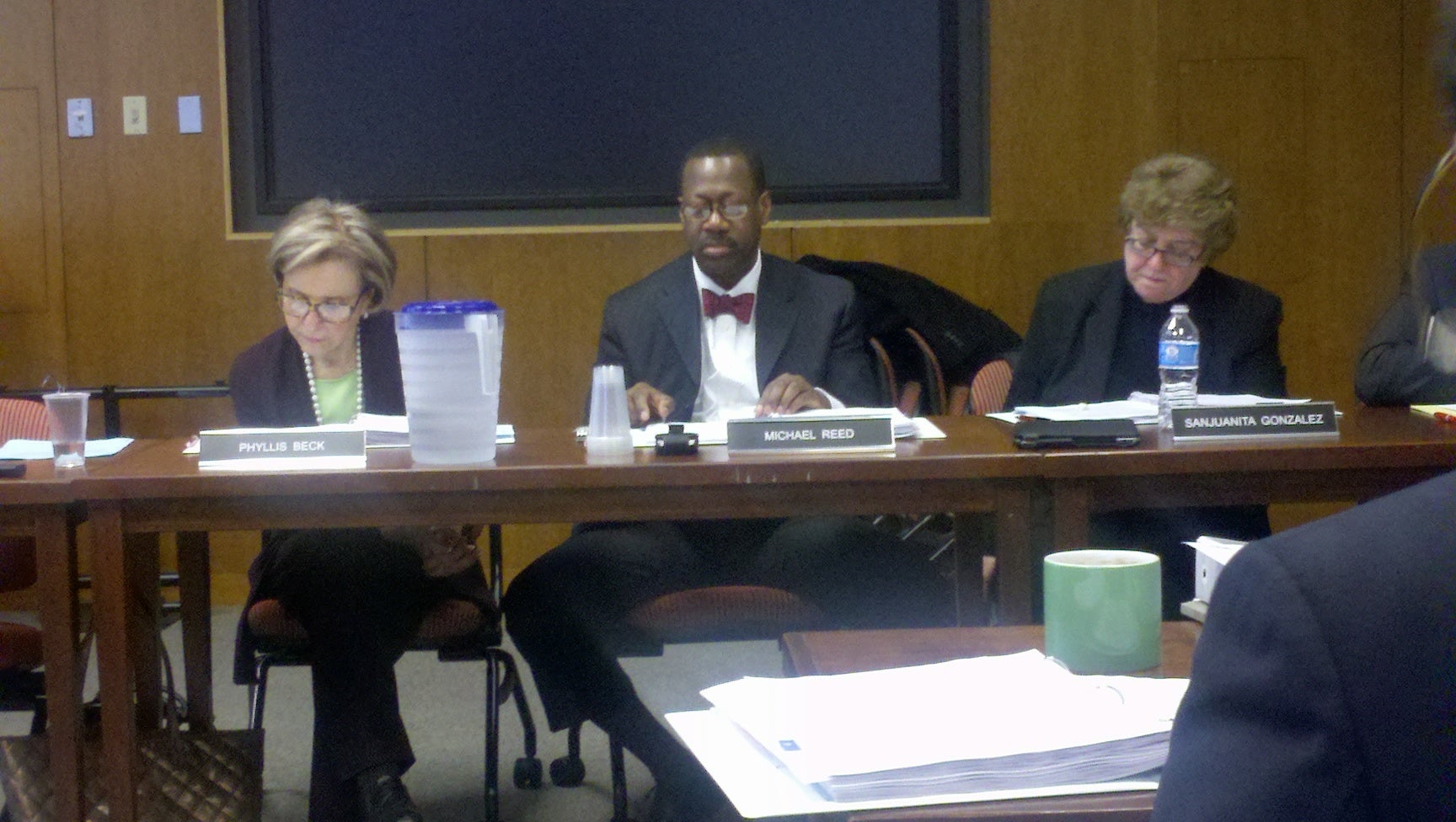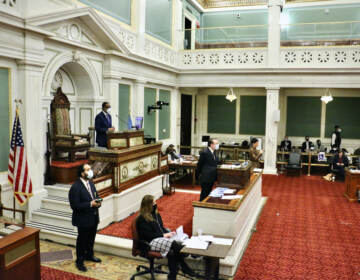Ethics Board: Grants given at the city’s request are not lobbying

Awarding grants to a city-related agency that has requested or applied for the money is not lobbying, the Philadelphia Board of Ethics said Wednesday.
And with that ruling, the William Penn Foundation has lifted its suspension on grants to the city and city-related entities – an action it took after public school advocates filed a complaint alleging William Penn was lobbying when it paid a consultant that made financial recommendations to the city school district. PlanPhilly is funded by the foundation.
“The Foundation is appreciative of the action taken today by the Board of Ethics to clarify the scope of the City’s lobbying registration and reporting ordinance,” said William Penn Foundation spokesman Tim Spreitzer in an emailed statement. “We look forward to resuming the Foundation’s thoughtful consideration of grant requests from City departments and City-related agencies, as well as related monitoring activities.”
The board clarified the relationship between grantmaking and lobbying at the request of Mayor Michael Nutter, who asked in hopes of assuring grant-giving organizations that they can give money to the city and city-related agencies without fear of violating the city’s new lobbying ordinance.
Last week, William Penn Foundation Interim President Helen Davis Picher said in a statement the foundation wanted to ensure compliance with the ordinance and was waiting for further clarification regarding permissible grant activity. The grant the complaint is based on happened before Picher’s tenure, under former Foundation President Jeremy Nowak.
The complaint filed last December by Parents United for Public Education, Philadelphia Home and School, and the NAACP alleges that the foundation lobbied the school district by giving money directly to the Boston Consulting Group – the consultant that recommended financial restructuring, including controversial school closings, to the district. It should have registered as a lobbyist under the ordinance, the complaint alleges.
The Board of Ethics can impose fines of up to $2,000. Federal laws regarding lobbying by private foundations are very complicated. But foundations found to have broken them face Internal Revenue Service penalties, which can include loss of tax-exempt status.
Parents United member Cathy Roccia-Meier told the Board of Ethics Wednesday that her organization appreciated the clarity regarding grants made to requesting city agencies, but it “does not have much to do with the substance of our complaint.”
Roccia-Meier said her organization “appreciates the support and responsible philanthropy the William Penn Foundation has practiced for years” but the complaint came from a different circumstance. She said the public school community has been put into “incredible turmoil as the result of a William Penn Foundation funded and supervised grant. If any lobbying occurred during that time, we need to understand that.”
Roccia-Meier said she hoped the clarification issued today would not distract “from a fair and impartial review of the lobbying complaint before you.”
The clarification the Board gave today – which it is sending to Nutter in form of a letter – did not mention the complaint against the William Penn Foundation. It referred overtly only to the two examples of grants Nutter listed in his request to Board of Ethics Executive Director J. Shane Creamer Jr. : The city Department of Parks and Recreation approached William Penn for money to plan a bicycle and pedestrian trail along the Schuylkill River. The City applied to Bloomberg Philanthropy’s Mayor’s Challenge, which sought proposals to address “vexing urban problems.”
But after the meeting, Creamer said the board decision could be extrapolated to similar circumstances in which a city agency applies for or requests funding. When asked if it could also be applied to William Penn’s grant related to the Boston Consulting Group, he said he could not comment in any way on the ethics complaint.
During the meeting, Creamer presented the board with a suggested response, and all members endorsed it, making only some minor language changes.
The heart of the response: Under the circumstances Nutter has described, in which a grant-making entity funds a city project as a result of a request or application, the grant-awarding entity would not be subject to the city lobbying code, because the entity is not trying to influence legislation or legislative action to advance its interests.
“In contrast, the process you describe involves the city request or applying for a grant funding, subject to a process and criteria established by a grant maker. The touch stone of lobbying does not exist. Namely, the grant maker is not making a direct or indirect communication for the purpose of influencing city action to advance its interests.”
After the meeting, Creamer spoke about the ethics complaint process.
When a complaint is filed, Board of Ethics staff does an investigation, and then recommends either dismissal or that the board pursue the complaint.
If a complaint is dismissed, the board notifies the involved parties, but never comments publicly. The parties may do so, however.
If the board pursues a complaint, their work is done in private, but the results are made public, he said. The board can either refer the matter to the Court of Common Pleas or handle it administratively. In the latter case, the subject of the complaint may request a hearing, which is also private.
WHYY is your source for fact-based, in-depth journalism and information. As a nonprofit organization, we rely on financial support from readers like you. Please give today.






